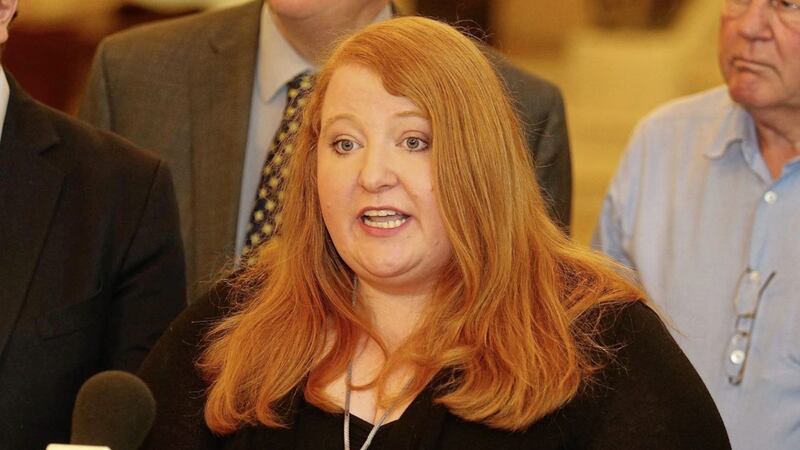Belfast City Hall, as often noted, is Stormont without the Good Friday Agreement’s ‘ugly scaffolding’.
This is especially true since the assembly lost its unionist majority last year. Belfast City Council lost its unionist majority in 1997 and Alliance has held the balance of power ever since.
So, again as often noted, the way City Hall operates is the way Stormont would operate without the petition of concern. Whoever could make common cause with the unaligned bloc, now including the Greens and occasional socialists as well as Alliance, would win the day.
There was a timely demonstration of this last September when Belfast City Council approved a new Irish language policy, with Alliance enforcing a compromise between nationalists and unionists over provision for Ulster Scots and other languages.
The Stormont analogy would be passing Irish language legislation as part of a wider cultures act - precisely the compromise the DUP claims to want and Sinn Féin has rejected.
The assembly’s new arithmetic is likely to be as enduring as it is at City Hall, with Alliance in the driving seat for decades - perhaps indefinitely. The 2021 census will reveal if the Catholic population is set to level off at just short of a majority. If so, Northern Ireland becomes a three-legged stool at the third leg’s permanent command.
The assumption that most unaligned voters are soft unionists was shattered by a LucidTalk poll last October, which found Alliance, Green and ‘other’ voters sit on a three-legged stool of their own - in a border poll, one third would vote for the union, one third for a united Ireland and one third are undecided. These undecided centrists, around 3 per cent of the electorate, could determine everyone’s fate - which once again has been widely noted.
Yet all of this is still flying over unionism’s head, judging by the reaction to a Belfast Telegraph column on Monday by the historian Ruth Dudley Edwards. Writing about Belfast City Council, she accused Alliance of naively siding with Sinn Féin by abandoning democratic principles for identity politics.
DUP and UUP representatives rushed to endorse this analysis on air and online, causing an acrimonious row that further deepened the loathing between both sides. Alliance former minister Stephen Farry spoke for his party’s leadership when he tweeted: “Reactionary approach from UUP and DUP on many issues at odds with own electorate and wider Northern Ireland society.”
The point is not that Alliance in Belfast is beyond criticism. Edwards rightly cited its support for a Sinn Féin ban on all “offensive” speech as idiotic posturing.
The point is that unionists cannot cope with Alliance, warts and all.
Confronted with an existential, obvious need to deal civilly with the most innocuous of opponents, they still completely flunk it.
The republican critique of unionists as too arrogant to share power with anyone must be part of the explanation, although in many ways it is the least interesting part. The DUP has shared power with Sinn Féin, after all, no matter how disappointed Sinn Féin was with the results.
In unionist areas, Alliance may attract the special opprobrium of the ‘Lundy’ when it appears to side with nationalists - that certainly happened during the flag protests.
Beyond national tribalism, however, a gulf in political culture is opening up between centrists and even the most moderate unionists.
Alliance is no longer the north Down prayer circle of legend - its internal conversation is dominated by self-defined ‘progressives’, more inclined to see issues in terms of the affected group than as ideas debated across society. So, issue by issue, they have placed ‘reactionary’ unionism in their out-group - from whence it will never return.
Edwards quoted UUP Belfast councillor Jeffrey Dudgeon, a thoughtful figure who brought the case that legalised homosexuality in Northern Ireland.
Recalling his tangles with Alliance, Dudgeon said: “They want conflict, so they can sit above it, so they can resolve it.”
Only an individualist could perceive the centrist ‘peacemaker’ role in this fashion. As far as Alliance is concerned, it is delivering compromise between competing groups - a collectivist perspective.
Republicans must often be as irritated as unionists by Alliance’s disproportionate influence but they have the wit not to say so and to work instead, issue by issue, on creating the shared sense of a progressive in-group.
From City Hall to Stormont, this is how the world is going. If unionism keeps fighting with Alliance, it is also how this particular part of the world ends.
newton@irishnews.com









